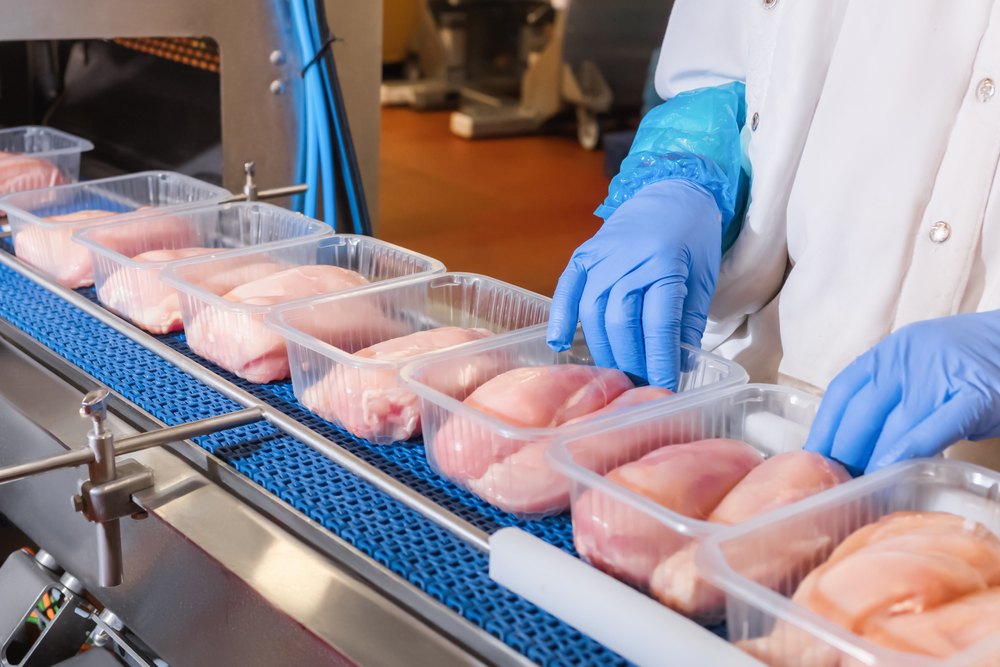Four JBS Foods USA subsidiaries and affiliates reached an agreement with the Occupational Safety and Health Administration (OSHA) to settle COVID-19 citations at two JBS facilities. The four JBS units agreed to assemble a team of company and third-party experts to develop and implement an infectious disease preparedness plan for seven of its meat processing facilities to protect its workers.
The seven facilities are JBS Green Bay in Green Bay, Wisconsin; JBS Souderton in Souderton, Pennsylvania; Swift Beef in Greeley, Colorado; Grand Island, Nebraska; and Omaha, Nebraska; and Swift Pork in Beardstown, Illinois.
Following inspections in April and May 2020, OSHA cited Swift Beef Co. in Greeley and JBS Green Bay Inc. in Green Bay—both parts of JBS USA—for failure to protect workers from coronavirus hazards. As part of the settlement agreement, Swift Beef and JBS Green Bay will pay assessed OSHA penalties of $14,502.
The Greeley plant was shut down on April 13, 2020, after a COVID-19 outbreak and reopened 14 days later. By July 30, 2020, the outbreak had led to 5 workers’ deaths, 51 hospitalizations, and 290 confirmed positive cases reported.
At the JBS Green Bay facility, 147 positive cases were confirmed by April 22, 2020. The JBS plant closed on April 26, 2020, and remained shuttered until May 6, 2020. By August 12, 2020, 357 positive cases were confirmed and 2 workers had died of COVID-19.
Under the agreement, the JBS subsidiaries and affiliates will use an updated Safe Work Playbook to reduce employee exposure to the coronavirus and work with third-party experts to assess the plants’ operating procedures and develop infectious disease preparedness plans. The team of experts will evaluate both work areas and areas where employees congregate to minimize potential employee exposure to infectious diseases.
A team of third-party multidisciplinary experts and company representatives also will:
- Review JBS’s existing programs and procedures, including its occupational health programs.
- Evaluate and provide recommendations regarding engineering, administrative, and work practice controls, including ventilation, employee and visitor screening protocols, and cleaning.
- Identify personal protective equipment (PPE) and respiratory protection needs, including the number of respirators and other PPE to stockpile in preparation for future outbreaks, epidemics, or pandemics.
- Address occupational health issues related to infectious disease prevention and response, and provide recommendations on a “continuity of operations” plan.
The seven JBS facilities will designate a plan administrator at each facility to implement and monitor the infectious disease preparedness plan.
COVID-19 and meatpacking
OSHA and the Centers for Disease Control and Prevention (CDC) both acknowledged concerns about coronavirus exposures in meat and poultry processing shortly after the COVID-19 pandemic was declared in 2020.
The CDC and OSHA jointly issued interim industry guidance that spring. The staff of the Select Subcommittee on the Coronavirus Crisis recently alleged that political appointees at the U.S. Department of Agriculture (USDA) interfered with the drafting of that guidance.
In August 2020, OSHA and the North American Meat Institute (Meat Institute) reached an alliance agreement for guidance, information, and access to training resources for protecting workers in the meatpacking industry from coronavirus exposures.
Meatpacking and poultry processing facilities are targets of OSHA’s COVID-19 National Emphasis Program (NEP), along with ambulance and home healthcare services; correctional facilities; department stores, groceries, supermarkets, and restaurants; and healthcare and long-term care facilities.

